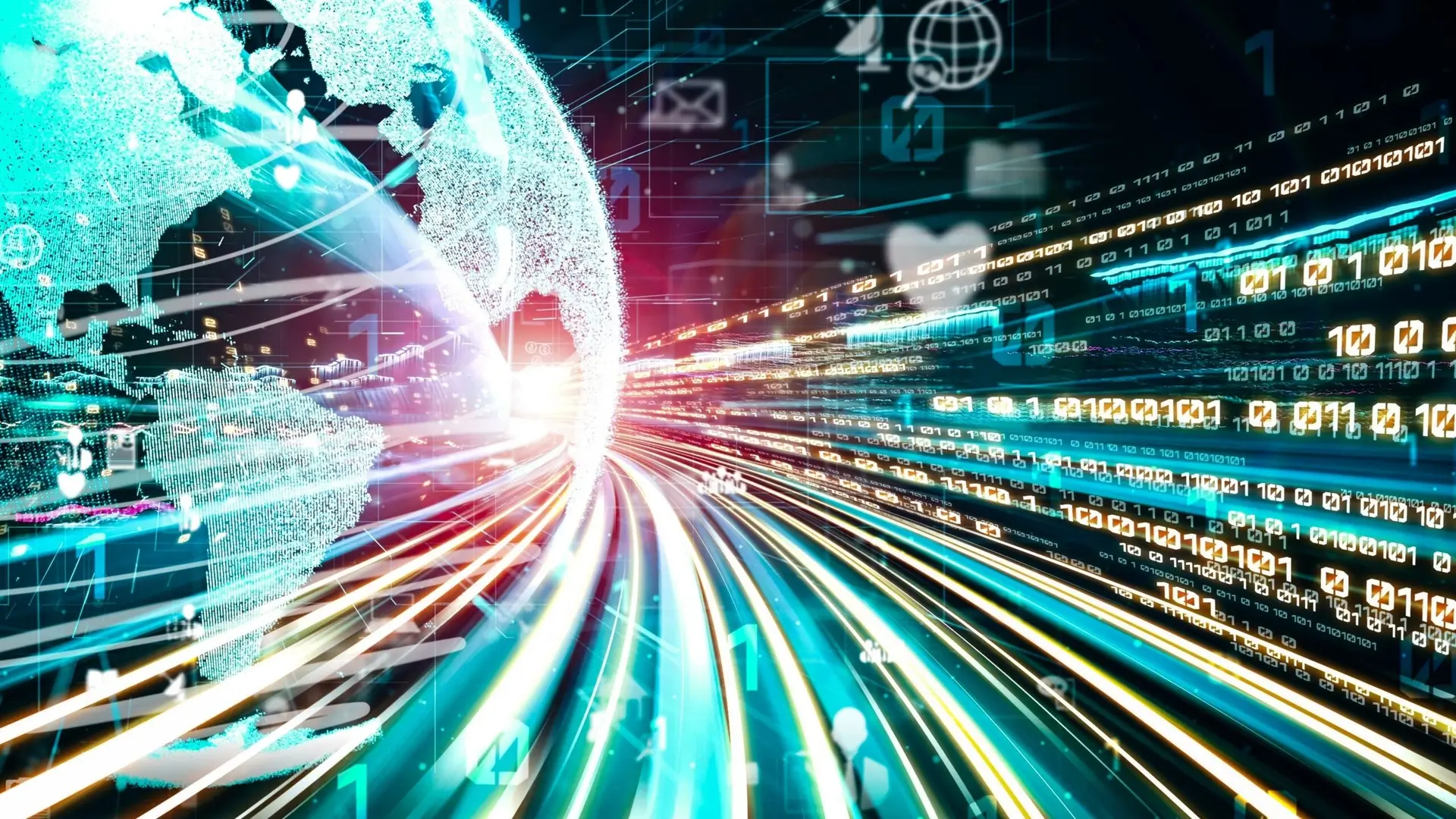As we move further into 2025, it is suspected that artificial intelligence (AI) and automation will be even further integrated into the landscape of lead generation. Depending on who you speak to, this is either an effective way to increase output efficiently, or it’s a cause for concern as it could lead to lost jobs, diminishing returns as a result of AI-over-saturation, not to mention the alleged ethical considerations. There seems to be convincing, well-thought arguments for both sides, and given how ideologically divided we’ve become online, it might be unlikely that said arguments will persuade anyone from the other side.
Whether a business embraces AI resources or rejects them is a matter of outweighing the potential challenges, from data accuracy to balancing automation with human touch, with positive outcomes. It is likely many businesses will, if they aren’t already, utilize AI-powered tools like ChatGPT, Google Gemini, and similar technologies as simple problem-solving or task oriented resources. Beyond that might not be a concern in 2025 just yet. For MGG Digital Consulting, our areas of interest with regards to building a lead-gen engine that works optimally for our clients are still the optimal ways to achieve growth. techniques that drive engagement and conversions.
The Power of AI in Personalization and Predictive Insights
One of AI’s most impactful contributions to lead generation is its ability to deliver hyper-personalized customer experiences. Modern consumers demand tailored interactions, and AI tools excel at analyzing vast amounts of customer data to identify patterns, preferences, and behaviours. These insights can empower businesses to craft clear, knowledgeable prompts and content strategies that will resonate deeply with their target audience.
For instance, AI tools such as ChatGPT can create personalized email campaigns or customer interactions based on behavioural data. If a lead frequently visits a specific product page, AI can generate follow-up emails emphasizing that product’s benefits. This kind of workplace automation is already available with powerful CRM applications like Hubspot and Salesforce. Google Gemini, with its multi-modal capabilities, shows potential in taking it a step further by combining text and visual data to tailor not only written content but also visuals, ensuring a cohesive and engaging experience.
Predictive analytics further enhances personalization by enabling businesses to anticipate trends and customer needs. AI models like Sigma can analyze historical data to forecast which products or services will attract attention, helping businesses allocate resources effectively. For example, a predictive model might identify growing demand for eco-friendly products in a specific demographic, allowing marketers to proactively tailor their campaigns.
While AI has potential to deliver extraordinary results, it’s important not to over-rely on automation. Human insight remains critical for interpreting nuanced customer data and making strategic decisions. AI tools, such as ChatGPT, assist by providing suggestions and scenarios, but they are most effective when combined with human judgment. This partnership ensures campaigns remain authentic and adaptable.

Streamlining Workflows and Enhancing Engagement
When it comes to lead generation workflows, AI and automation can offer seamless integration between platforms by eliminating manual, time-consuming tasks. Tools like HubSpot, Salesforce, and even Adobe Creative Suite are examples of platforms that have integrated generative AI capabilities to improve the lead nurturing process, from initial capture to final conversion. Workflow automation, prompted by humans and executed by artificial intelligence, ensures consistent communication with leads while preventing prospects from falling through the cracks.
AI-powered chatbots, equipped with advanced natural language processing (and now natural language understanding for advanced reasoning), enhance engagement by managing real-time interactions, answering questions, qualifying leads, and collecting data. Unlike some of the old chatbots that could not provide sufficient answers to anything but the most basic questions (also a result of the limited knowledge base it was given), modern tools like Ada or Blend personalize responses to align with a company’s brand voice, seamlessly transitioning conversations to sales reps when needed. Advanced AI like Google Gemini goes further, analyzing multi-modal data such as text and visuals to optimize user engagement. AI also automates lead scoring, identifying high-value prospects based on behavior and interactions. However, balancing automation with a human touch is crucial, as tools like Gemini flag scenarios needing human involvement to maintain authenticity.
It’s only natural that these tools are going to get better and more advanced with time and funding. But it is unlikely they will replace the tried, tested, true, and still evolving methods of lead generation anytime soon, which include SEO-focused web design, organic content built for search engine ranking, consistent upload of quality social media content, and sponsored ads across the platforms consumers frequent in high volume. These strategies require not only technical expertise but also a deep understanding of a business’s unique vision, mission, and long-term goals—elements that AI cannot replicate with the same clarity and insight as humans. Crafting a lead generation strategy involves intuition, creativity, and alignment with brand values, which are critical in fostering genuine connections with audiences and driving meaningful engagement. One of our clients, D2 Build, has benefitted greatly from this approach. Once AI-driven tools have reached a point where they can ensure business competitiveness, our approach to a multi-channel lead generation system will be more open to more AI-driven resources.

Overcoming Challenges and Ensuring Scalability
While AI and automation are moving towards producing more transformative results, they currently have many challenges, including data accuracy, regulatory compliance, and scalability. Addressing these issues effectively ensures sustainable growth in lead generation efforts. Most businesses struggle to switch to AI automation due to high initial costs, lack of technical expertise, and challenges integrating AI into existing workflows. Legacy systems and processes that many organizations are relying on day-to-day are difficult to replace adequately without disrupting operations. Additionally, AI requires large volumes of high-quality data, which many businesses either lack or cannot properly organize.
Customization needs, internal resistance, and uncertainty about ROI further hinder AI adoption. Businesses in industries reliant on personal interactions fear automation may harm customer relationships. Concerns about data privacy, ethical usage, and regulatory compliance also pose significant challenges. For smaller businesses, the scalability and cost-effectiveness of AI remain questionable, making traditional methods more practical in many cases.
At MGG Digital Consulting, we take a hybrid approach to lead generation that prioritizes human expertise while integrating automation where it makes sense. Our methods don’t rely heavily on AI, mostly limited to CRM workflow automation and AI-guided insights for tasks like basic content optimization and campaign management. We balance these tools with real research, human-driven edits, and strategic creativity to ensure every lead-generation campaign is tailored, authentic, and aligned with our clients’ long-term goals. By combining automation with human insight, we create strategies that resonate deeply with audiences and deliver results that feel personal and impactful.
For instance, our approach to SEO-focused web design and organic content creation relies on deep market research and understanding of customer behavior, ensuring content performs well for search engines without losing its human touch. Our social media strategies emphasize quality over quantity, focusing on storytelling and brand alignment rather than mass production. By embedding these thoughtful, human-centred elements into our lead generation framework, we help businesses grow authentically, maintaining their unique voice and values in an increasingly automated world.

As businesses navigate the evolving landscape of AI and automation in 2025, it’s clear that the best results come from a balance of technology and human expertise. While AI offers powerful tools for workflow automation and data analysis, it cannot replace the creativity, intuition, and mission-driven clarity that humans bring to lead generation. At MGG Digital Consulting, we embrace a hybrid approach, leveraging the best of both worlds to build lead-generation systems that are innovative, authentic, and tailored to the unique needs of our clients. The future may hold more advanced tools, but human-driven strategies will always be at the heart of meaningful business growth.

